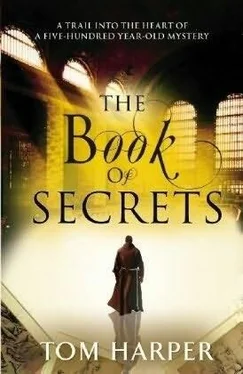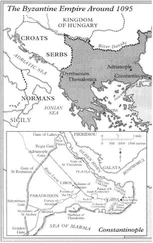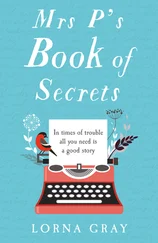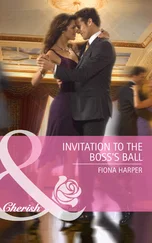‘Götz von Schlettstadt, the goldsmith who engraves the dies and forms we use.’ Not long after I met him the Armagnaken had sacked his town and looted his shop. A goldsmith with no gold cannot maintain a business. Soon afterwards he had come to Strassburg and offered to work for me. I accepted gladly, for he was the most meticulous goldsmith I ever knew. All metals were like clay in his hands.
‘Father Heinrich Günther.’ A younger man with a grave face and staring eyes. Günther had been vicar of St Christoph’s church around the corner until – in a dispute between the archbishop and the Pope – he had committed the sin of siding with his superior’s superior. The archbishop had stripped him of his benefice and left him penniless.
I looked at them all, watching Fust or studying their cups as their moods dictated. These orphans and outcasts were my guild, a brotherhood of craftsmen. If only Kaspar could have been among them my happiness would have been complete.
‘And what do you all have in common? It sounds like the beginning of a joke: a carpenter, a goldsmith, a priest and…’ He looked at me. ‘Whatever you are, Hans Gutenberg?’
A copyist? An imprinter of paper? A beggar? A fool?
‘A pilgrim.’ I could see the answer displeased him. I hurried on. ‘First, we will demonstrate the power of this art.’
I handed him a piece of paper. Four pinholes had been pricked in the corners, and a pencil line ruled apparently at random in the middle.
‘Write your name here.’
With the reluctance of a man who thinks he is being made a fool of, he took a pen from the table and signed his name on the line.
‘The paper is damp,’ he commented.
‘It takes the ink better.’
Saspach took the signed paper and disappeared through a door into the next room. From behind the door came a long creak of protest, like a ship straining on its hawser. Then a thud, a rasp and a clang. Fust’s eyes narrowed, while the others affected not to notice anything.
Saspach returned and laid the sheet triumphantly in front of Fust.
‘Liebe Gott,’ he murmured.
His name was still there, just as he had written it. But where before it had been a solitary bloom on a barren page, now it sat in the midst of a garden, hundreds of words that had blossomed around it in an instant and drawn it into their web. His name was now part of a sentence:
Wherefore we decree that JOHANN FUST is truly forgiven of these sins and that the stain of them is removed.
‘No pens. No desks. No mind to wander or hand to slip. A perfect copy every time. And, as you see, completed in an instant.’
Fust looked like a man who had fallen down a hole and found a cave of gold. He pointed to the grammar book I had shown him in the vineyard. ‘And this came out of that room also?’
‘Every page.’
‘It is indistinguishable from the real thing.’
‘Perhaps it is the real thing – as gold is to lead or the sun is to the moon.’
But Fust’s merchant mind could not be dazzled for long. Already I could see the calculation in his eyes, measuring and counting. ‘Why do you need a thousand gulden from me? Everything here seems complete.’
‘This is just the beginning. This proves it is possible. To take advantage of the art I need more presses and equipment, more men to work them, more paper and vellum.’
‘To print indulgences and grammar books?’
I shook my head and leaned over the table. I had sworn beforehand that I would not touch the wine lest it cloud my thoughts. Now I found I had already drained my cup. It rushed in my veins.
‘A new venture. Bolder than anything we have attempted. For all our achievements, we are still apprentices in this new art. Now we will make our master-piece.’
Rhineland-Palatinate, Germany
Nick took a random exit off the autobahn and drove until he found a motel. Emily slept in the seat next to him. He felt empty, his body a hollow tank trembling from the last drops of adrenalin and caffeine sloshing around inside. He had to force his eyes to stay open. He shivered with relief when they pulled into the car park at the back of the motel, and almost wept when he saw the plain room with its solid brown bed.
Emily threw back the bedspread and sat on the edge of the bed to take off her shoes and socks. She looked at him for a moment, a strange look that Nick didn’t understand.
With a self-conscious shrug she stood, pulled her sweater over her head and wriggled out of her jeans. All she was wearing underneath was a thin white camisole and her underwear. She stood there on the carpet in the middle of the room, blushing slightly, like a virgin on her wedding night not certain what to do. Nick tried not to stare.
‘I just want you to hold me.’
Nick nodded. He was too tired to feel awkward. He stripped down to his boxer shorts and clambered into the bed after Emily. He lay down beside her, cupping his knees inside hers, pressing his chest against her shoulder blades. She shivered; he pulled back, but she reached round and pulled his arm firmly around her waist.
‘It’s nice. It’s just it’s been a long time.’ She sighed. ‘Not that. Just… warmth.’
‘I think I know what you mean.’
She nestled back into him. Nick laid his palm flat against her stomach, terrified of touching her where he should not, and at the same time longing to. He remembered lying like this with Gillian, the same confusion, so close and so aware of the distance. Always the distance.
He fell asleep.
Mainz
When Fust had gone I wandered through the house. The day was fading; soon it would be too dark to work. For the moment, the labours that were the life and breath of the house continued. When I stepped outside into the yard I could smell the heavy perfume of boiling oil, sharpened by the tang of coal smoke. My father’s kitchen had become our type foundry, and the adjacent scouring house the room where we cooked up our inks. Inside the foundry I could see sparks where the fresh types were ground smooth on a wheel.
I climbed the stairs by an outbuilding and crossed a walkway back to the main house. Here, an outside gallery ran around the internal courtyard. I peered through the barred windows as I walked past. In the room where the die maker had once cut coin moulds for my father, Götz now chiselled letters out of copper squares. In the next room, Father Günther sat at a writing desk and pored over a small Bible. He had a sheet of paper beside him and a pen in his hand, which never stopped moving as he read. For anyone used to watching copyists it was an unnatural motion: the pen danced up and down the page, line to line, apparently at random; it never stayed still enough to form even one letter, but left a trail of dots and dashes like bird prints in snow. If he resembled anything it was not a scribe but a merchant clerk taking inventory of his stock. In fact, he was taking inventory of every letter in every word of the Book of Genesis.
He saw me pass and called through the open door, ‘Did you get what you wanted?’
‘He will give us eight hundred gulden now, and more later.’ It was less than I had asked for, more than I’d expected. ‘The equipment will be its own collateral. In return for exclusive rights to sell what we produce, he has also agreed he will not collect the interest. And he has ordered fifty copies of the Donatus grammar book for delivery in three months’ time.’ I laughed. ‘You should have seen the look on his face. He could not believe such a thing was possible.’
‘So he didn’t notice the grammar book was a fake?’
‘It was flawless.’ Though the indulgence had been genuine, the grammar book I showed Fust was the product of two nights’ desperate work by Father Günther and a quill pen when it became clear we could not produce enough types to set all sixteen pages in time.
Читать дальше












